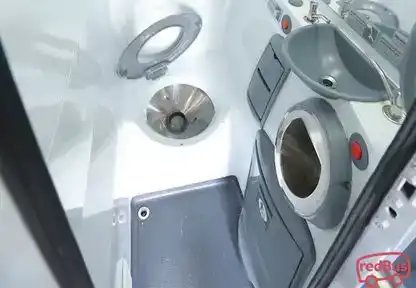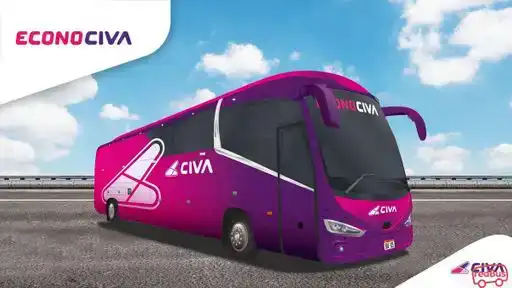Huaura to Talara Bus
OUR PROMISE
SECURE PAYMENT
redBus has secure payments and keeps your information and purchases completely safe and secure.
ATTRACTIVE DEALS
Get amazing discounts every time you book with redBus
WIDE CHOICE OF BUSES
150+ Bus companies with 800+ Routes in Perú
Huaura to Talara Bus Service
Avg. Bus Duration
:15 hrs 28 mins
Buses depart from
:Huaura
Bus arrives in
:Talara
Cheapest Bus
:PEN 80.00
Bus Companies
:1
Earliest Bus
:19:20
Last Bus
:19:20
Daily Bus Services
:1
Buy Huaura to Talara Bus Tickets Online - Unlock Extra Savings with redDeals on redBus
Reserve a bus from Huaura to Talara with redBus, Peru, and grab exclusive redDeals. Choose from 113 deals on 31 bus operators and avail yourself of discounts up to 25% on your bus travel!
Huaura to Talara Bus
The distance from Huaura to Talara city is 592 mi (953 km) and it takes about 16 hours of travel. Civa is the main terrestrial transportation company that covers this destination in its travel itinerary, offering bus tickets from s/. 61 to s/. 111. The bus leaves from 6:00 p.m. to 7:20 p.m. from Av. San Martín, in Huaura's downtown. The bus destination is Av. Ignacio Merino, principal road of the urban area of Talara. The climate in Talara is warm and dry, with a maximum temperature of 80 °F (27°C) and a minimum of 68 °F (18°C).
Top Bus Operator Images





OTHER BOARDING & DROPPING POINTS IN
Huaura
- Agencia Huaura
Talara
- Terminal Talara
Why book a Huaura to Talara bus with redBus?
You can also time-to-time redBus offers while booking your bus tickets online from Huaura to Talara. Follow a simple, fast and secure bus booking procedure. This helps save time and also helps to create a joyful travel experience!
About Huaura
The first farmers that dominated the plains around the Huaura river where the ones that created the original Huaura settlement during pre-hispanic times. The life of this inhabitants was influenced by the rule of the Wari, Chanchay, Chimú and Inca civilization, which expanded to the area. During the Spanish incursion of the XVIth century, the valley was conquered and came to be divided into several encomiendas, although it kept a urban center which will support the spanish families that would come in the future. Viceroy Luis de Velasco gave the town the title of Villa de Carrión de Velasco (1597). The 12th of November of 1820, the Independentist Army arrived in the area with the objective of installing troops in the nearby haciendas. The 27th of november of that same year, Don José de San Martín proclaimed the Independence from the Duke San Carlos Balcony, now known as the Huaura Balcony, near 1 year before of the official proclamation of the Peruvian Independence. The locality of Huaura was declared as historical in 1954, due to the events of the Independence Campaign.
About Talara
The history of Talara, a city in the Peruvian north keeps a strong relation with the oil industry of the first years of the 20th century, since at this time the city was known as the black gold capital due to the abundance of oil, a resource that -for centuries- was ignored because it was unknown its potential. The first sign of this resource in the area was a pitch well that was used by the old inhabitants of the region, the tallanes, with artisan purposes. In the colonial period, the lands that harbored secretely the wealth of this oil resource changed constantly of owner. With the passage of centuries, the family Lama were the last owners of that territory, who, once they knew about the oil boom out of the country, decided to negotiate the use and sale in some cases of the land with foreign companies. This way started a new period in the history of the northern Talara, since the oil did not bring only business owners to invest in the oil resourse, but also transformed the social configuration of the environment with the immigrations and camp settlements of people who arrived to work in the oil wells. Nevertheless, the social problems started because of the excessive exploitation to the workers, who, due to the abuses, rose up in strikes that with the passage of time, obtained a better labor situation in the oil industry of Talara.
FAQs
How can I make an online bus ticket booking in Peru?
You can book a bus of your choice to any destination in Peru by logging on to the official website of redBus which is redbus.pe/en/ . The site is user-friendly and you can book your bus ticket in a matter of minutes.
How do I book a bus from Huaura to Talara?
You can either visit the terminal and go the booth belonging to the bus operator of your choice, wait in line, select a seat, and book your ticket. If you’d rather not do that, you can visit redbus.pe/en/ and book your seat within 5 minutes.
Do I need to print out my bus ticket before boarding?
There are two main scenarios that you might fall into when you have to board a bus. Now, if your boarding point is at any terminal in redbus.pe/en/ , passengers will have to take a print out of the bus ticket that has been sent to the email in a PDF format. The second scenario is when your boarding point is a bus stop and not a terminal. In this case, you will receive an M-ticket that you will have to produce before boarding your bus. If the operator does not provide an M-Ticket, you will have to take a printout of the ticket (PDF) that has been sent to the registered email ID that you have used to book the bus ticket on the redBus website. Some operators might levy a charge if these conditions are not followed.
Can I reschedule my journey after I have booked my ticket?
Yes, you can. But this feature is limited to only a few bus operators in Peru. Look for the reschedule icon before booking your ticket.
How do I pay for my bus ticket on the redBus website?
There are a number of different modes of payment offered to customers. Customers can either pay by credit card, debit card, or they can select any of the banks listed when you click the “FPX (Peru Online Bank Transfer).
Popular Bus Routes from Huaura
Popular Bus Routes to Talara
Top Bus Operators in Huaura
Top Bus Operators in Talara
Other Bus Routes From Huaura
Huaura to Nueva Cajamarca BusHuaura to Chiclayo BusHuaura to Catacaos BusHuaura to Chachapoyas BusHuaura to Chato Grande (Piura) BusHuaura to Zorritos BusHuaura to Bagua Grande BusHuaura to Piura BusHuaura to Cahuide BusHuaura to Av. Salamanca BusHuaura to Chao BusHuaura to Terminal Mancora BusHuaura to Terminal Moyobamba BusHuaura to Moyobamba BusHuaura to Pomachaca BusHuaura to Agencia Morropón BusHuaura to Terminal Terrestre Cajamarca BusHuaura to Terminal Bagua Grande BusHuaura to Tarapoto Busmore >>
Other Bus Routes To Talara
Agencia Huaura to Talara BusJavier Prado to Talara BusSullana to Talara BusÓrganos to Talara BusTerminal Plaza Norte to Talara BusTerminal Terrestre Sullana to Talara BusLima to Talara BusPlaza de armas - organos to Talara BusChimbote to Talara BusTrujillo to Talara BusChiclayo to Talara BusAv. Jose Leonardo Ortiz to Talara BusMáncora to Talara BusHostel Loki to Talara BusLa Victoria to Talara Busmore >>
Other Bus Routes
Chulucanas to Agencia La Matanza BusCasma to Barranca BusHuaraz to Santa Cruz BusTambo Grande (piura) to Chiclayo BusCasma to Piura BusTerminal Plaza Norte to Huancayo BusTerminal Plaza Norte to Morropon BusHuancayo to Comas BusCahuide to Nueva Cajamarca BusTerminal Juanjui to Terminal Pucallpa BusTocaima (Cun) to Pubenza(Cun) BusSan Isidro to Camaná BusNazca to San Isidro BusCalca to Cusco BusHuaraz to Laguna 69 (tour huaraz) BusTerminal Atocongo to Nazca BusTomas Valle to Picota BusSicuani to Arequipa BusNaranjillo to Juanjuí BusTerminal Atocongo to Ayacucho Busmore >>
Other Bus Operators
Anita Tours - Continental PacificoTransportes ApocalipsisPeru HopTransportes PasamayoNorte Chico BarrancaAinhoa TransportEsval ToursBahia ContinentalOL_Not Null TravelsTurismo DiasTransportes MendoRaracito BusExpreso AntezanaTurismo TitanicZ BussTurismo TransandinoTiticaca BoliviaTransportes MirandaTurismo AmanecerTurismo Chocanomore >>